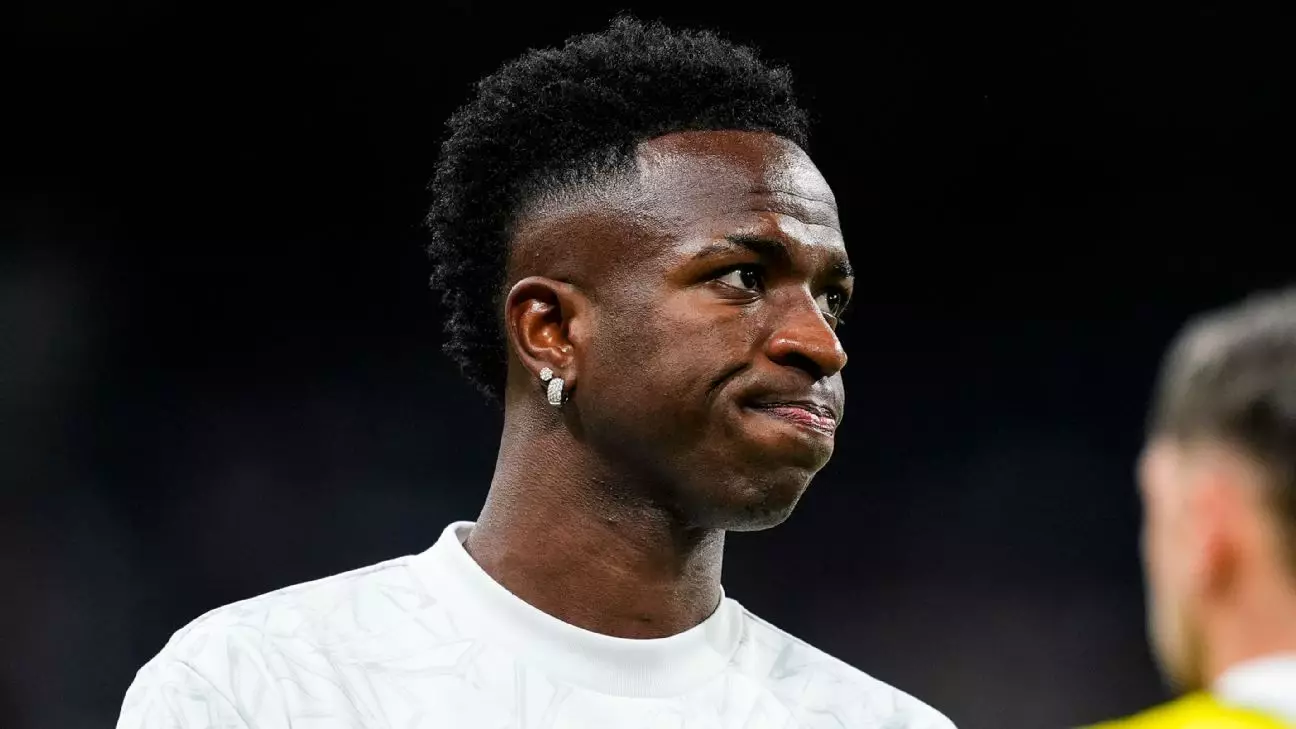In a provocative move that has caught the attention of football fans worldwide, Vinícius Júnior and several of his Real Madrid colleagues have opted out of attending the prestigious Ballon d’Or ceremony. This decision, driven by their belief that Manchester City midfielder Rodri is poised to claim the award, illustrates a deeper discontent with what they perceive as an unfair outcome. The message is loud and clear: the players are standing in solidarity against a decision they believe diminishes their contributions.
Vinícius’ performance last season positioned him as a frontrunner for the 2024 men’s Ballon d’Or. His remarkable tally of 15 goals in La Liga and six in the Champions League—including critical strikes that propelled Madrid past formidable opponents—testifies to his skill and determination on the pitch. The Brazilian’s efforts were pivotal in securing both the La Liga and Champions League trophies for Real Madrid, an achievement that ordinarily merits recognition on an international stage like the Ballon d’Or.
Support from the Club
Sources within the club have voiced their concern over the potential sidelining of Vinícius for the award. The outrage is compounded by the perception that his exclusion is not just a simple oversight, but a “historic robbery” of deserved accolades. With notable teammates, including Jude Bellingham and Honorary Coach Carlo Ancelotti, also in the running, the choice to abstain from the ceremony speaks volumes about the mood in the Madrid camp.
While Rodri’s key role in Manchester City’s success during the last season—and his impact on Spain’s Euro 2024 triumph—certainly presents a formidable case for his recognition, it raises questions about how contributions are weighed. Despite his accolades, Rodri’s achievements pale compared to the cultural and competitive significance of a player like Vinícius, who is viewed as a creative powerhouse in football today.
A Contrast in Narratives
The awarding of the Ballon d’Or has evolved into a deeply competitive arena, where narratives often overshadow merit. Vinícius could become the first Brazilian since Kaká in 2007 to gain this honor, yet instead of celebrating the possibility, the player and his teammates feel compelled to make a stand. Recent performances—like a sensational hat trick against Borussia Dortmund—highlight Vinícius’ capabilities, while his struggles in the Copa America echo a sobering truth about the unpredictability of football accolades.
A Broader Reflection
Ultimately, Vinícius Júnior’s absence from the Ballon d’Or ceremony transcends mere personal disappointment; it is a critique of an awards system viewed by many as flawed. By making a statement through non-attendance, he and his teammates encapsulate their frustration, demanding attention to merit over narrative in a world often ruled by biases and trends. As fans await the outcome, it remains to be seen whether this protest will lead to any significant change or acknowledgment within the football community regarding merit and justice in awarding accolades.

